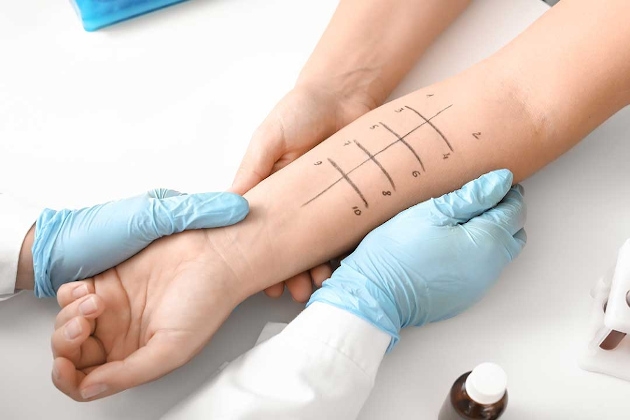What is an Allergy Test?
An allergy test, along with a medical history, is a method that helps establish a diagnosis of what you may be allergic to. This is usually done in the form of a skin or blood test.1
Although there are various types of kits or tests available, allergy tests should always be done under the professional supervision of your doctor or allergy specialist. This is the best way for you to get safe and accurate results.
Why Get an Allergy Test Done?
You might be wondering, "how will an allergy test help?"
When your body responds unusually to an otherwise harmless particle or substance, it is called an allergic reaction. Allergens can be found in a variety of places, making them hard to avoid. Allergens can also vary from person to person and can take time for your body to sensitize before having a reaction. This makes it hard to know exactly what you are allergic to. 2
While we may be able to point out some allergies after experiencing a reaction, it is still hard to determine the severity of the allergy, and what allergens we should try to avoid. Testing for allergies through personal encounters is also risky as some people may have life-threatening reactions (anaphylaxis).
For others, allergy symptoms including watery eyes, itchy eyes, congestion, hives, sneezing, and runny nose etc. are all common symptoms that overlap across multiple allergies. 3
One sure way of determining what ’you may be allergic to is to get an allergy test. This will help you avoid potential and future triggers and can also help you better understand your body. When you know what you are allergic to, it is also easier to talk to your health care professional about solutions for reducing your symptoms.
Types of Allergy Tests
There are several types of allergy tests available. Depending on what you’re looking to find, or how your body reacts to the test, certain results may not be the same. You should always consult with your doctor to determine which of the following tests is right for you: 4, 5
Skin test
A skin allergy test is often regarded as the easiest, fastest, and most cost-effective method. There are several types of skin allergy tests that your specialist can perform:4
- Skin prick test/scratch test: this test requires a tiny sample of allergen on the skin. The skin is then slightly pricked (or scratched) with a tool to see if there is any reaction when the body is in contact with the allergen.
- Intradermal Skin Test: typically performed when a substance does not cause an allergic reaction in the skin prick test but is still suspected as an allergen. The intradermal skin test requires a small injection of the allergen under the skin.
- Patch Test (T.R.U.E. Test): this test comes in the form of adhesive pads loaded with allergens, and then left on the skin for 24 – 72 hours.
Blood test
This test looks for substances in the blood cells called antibodies. Although not as sensitive as a skin test, blood allergy tests are a great alternative for people who have certain skin conditions.
How Will an Allergy Test Help my Allergies?
Knowing more about your body and what it deems as harmful allows you to protect it better. The results of your allergy test can help you manage and better prepare for future triggers, and even help you avoid these allergens altogether.
If you test positive for grass pollen allergy but have to or love to be outdoors during spring, you can always count on over-the-counter (OTC) antihistamines like Reactine® Extra Strength or Reactine® Liquid Gels. These OTC medications can help alleviate your allergy symptoms and provide 24-hour relief. Reactine® is an antihistamine that relieves symptoms of seasonal allergies (e.g. trees, pollen, grass) as well as indoor allergies (e.g. dust, animal dander, mold) including sneezing, runny nose, congestion/stuffiness, itchy, watery eyes, itchy nose/throat, and itching and hives due to allergic skin reactions.
Always consult your doctor if you are still unsure on how to deal with your symptoms. You can also schedule an appointment with your local healthcare practitioner for an allergy test. If you are taking OTC medications, be sure to follow the instructions as directed on the label.

